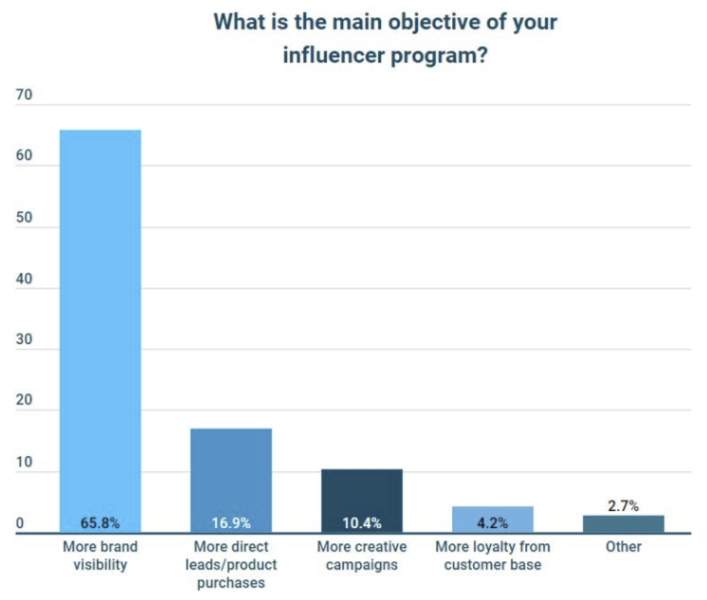Marketers cautious about influencers’ authenticity, per new survey
The report, from social listening platform Talkwalker, shows an emphasis on long-lasting relationships with a handful of influencers.
Influencer marketing could use some soul searching, a recent survey points out.
“The Global State of Influencer Marketing in 2019” [free, registration required], the first such report from social listening platform Talkwalker, queried more than 800 marketing, PR and other digital professionals worldwide through an online form. It showed influencer marketing has a growing fan base among marketers, who are also wary of its pitfalls.
Fyre, Payless, Lil Miquela. Recent pitfalls have included the role of influencers in propelling the Frye music festival fiasco in 2017, the duping of fashion influencers in Payless’ fake luxury shoe store event, and the suit against influencer Luke Sabbat for accepting a $60,000 marketing contract to promote Snapchat Spectacles — and then failing to do so.
And that’s not even mentioning the bots whose auto-liking and auto-commenting boost the reputation of selected influencers, or the completely AI/computer-generated influencers, like Lil Miquela.
These kinds of downsides have put authenticity high on brands’ must-have list, the report concluded, saying many respondents mentioned issues related to authenticity and brand values in the answers to open survey questions.
“Long-lasting relationships.” The report also noted that brands and agencies are emphasizing “long-lasting relationships with a few very specific influencers,” since it’s easier to manage and track the impact of a smaller group. The survey found that nearly three-quarters of respondents work with about four dozen influencers or less.
Additionally, Talkwalker says, community size and readership is ranked just fourth among criteria brands use for selecting influencers, following the top criteria of coherence of posts with brand message, quality and creativity of content and engagement. The bottom criterion, below community size: the cost.
The survey results showed a “big gap” between intent and impact for influencer marketing, Talkwalker CEO Americas Todd Grossman said via email. Nearly 70 percent of respondents pointed to influencer marketing as a top priority this year, he said, but almost 40 percent noted that ROI “is a major challenge.”
Top priority: brand visibility. “While brands are eager to leverage the power of influencers,” he said, “many of them haven’t yet developed a reliable measurement and management strategy, which makes planning and tracking these types of campaigns more difficult.”
The top priority for employing influencers is brand visibility, according to 66 percent of respondents, followed at a distant second by lead generation, which was cited by 17 percent of those surveyed.
Sixty-nine percent of respondents said influencer marketing is a top priority this year, and 61 percent said they will increase their influencer budget. But only about 31 percent have an operational influencer marketing program.
Why you should care. Influencer marketing has been touted as the digital age’s version of word-of-mouth, which is among the most valued and the most difficult of marketers’ options.
But, as recent events show, buying endorsements by influencers, many of whom are purposefully amateurish in their presentations, can have its risks. As influencer marketing evolves into its next phase, this survey indicates, marketers are recalibrating what they’re really looking for, while trying to minimize the possibility that their efforts will backfire.
Opinions expressed in this article are those of the guest author and not necessarily MarTech. Staff authors are listed here.
Related stories
